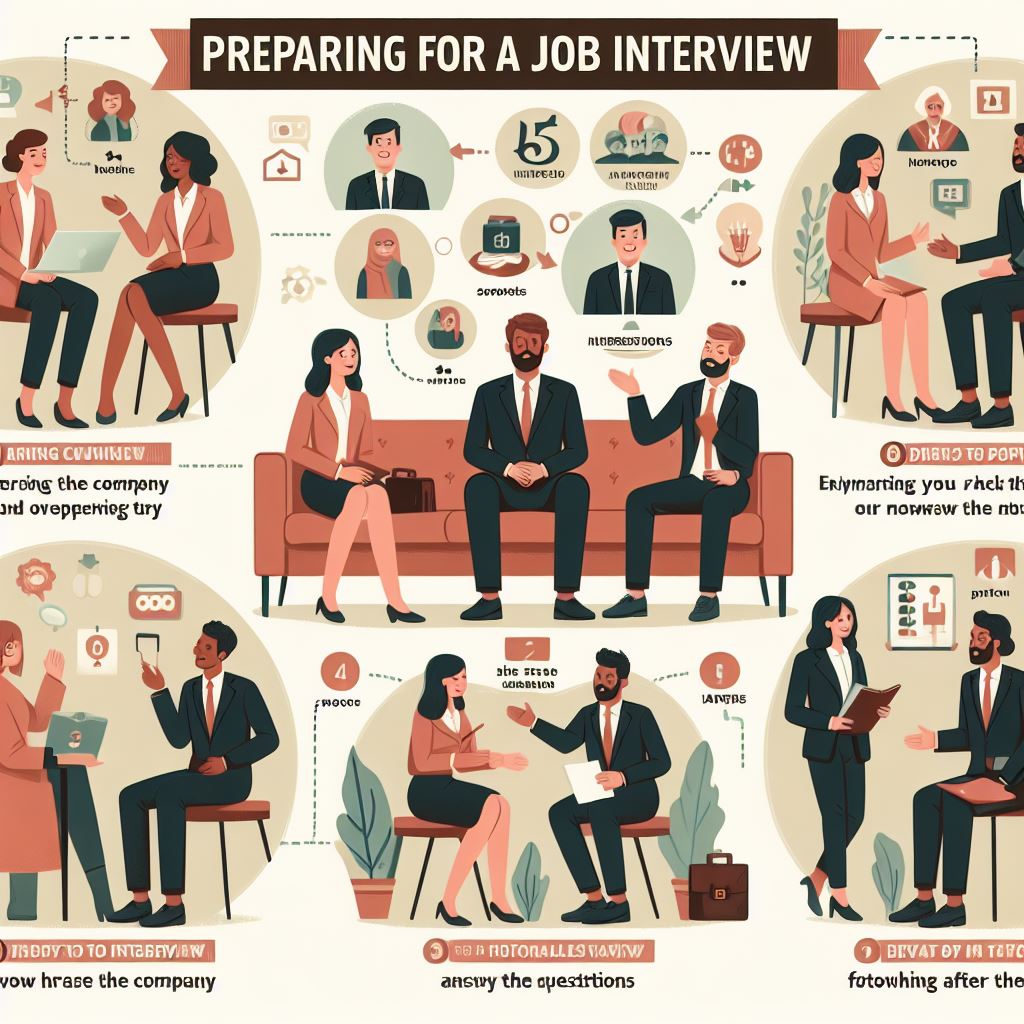11 Quick Tips On How To Face An Interview
Congratulations! You’ve secured an interview—an opportunity to showcase your skills and personality. Here are eleven quick tips to help you make a lasting impression:
How to Face An Interview:
Introduction
In the competitive world of job hunting, a successful interview is crucial. It’s not just about answering questions; it’s about presenting yourself as the ideal candidate for the job. Let’s dive into the key aspects that can make your interview experience a triumph.
Importance of Preparation
Researching the Company
To truly stand out, delve into the company’s history, values, and recent achievements. Demonstrating this knowledge during the interview expresses your genuine interest and commitment.
Understanding the Role
Craft insightful questions about the role, showcasing your enthusiasm and ensuring it’s the perfect fit for both parties.
Anticipating Common Questions
Prepare for typical interview questions, tailoring your responses to highlight your skills and experiences that align with the job requirements.
Crafting a Standout Resume
Tailoring Your Resume
Ensure your resume mirrors the job description, emphasizing relevant skills and experiences that set you apart.
Highlighting Achievements
Don’t just list duties; showcase accomplishments. Quantify your achievements to provide a tangible sense of your impact in previous roles.
Using Action Verbs
Start bullet points with dynamic verbs, injecting energy into your resume and conveying a sense of proactivity.
How to Face An Interview:
Mastering Non-Verbal Communication
Dressing Appropriately
Dress professionally, aligning your attire with the company’s culture. A polished appearance boosts your confidence.
Maintaining Eye Contact
Establish a connection with your interviewer by maintaining steady eye contact, reflecting your attentiveness and sincerity.
Body Language Tips
Convey confidence through open body language. Sit up straight, avoid fidgeting, and offer a firm handshake.
Nailing the Elevator Pitch
Crafting a Concise Pitch
Craft a brief pitch that encapsulates your professional journey, highlighting key achievements and skills.
Showcasing Relevant Skills
Tailor your pitch to emphasize skills relevant to the job, leaving a memorable impression on the interviewer.
Highlighting Professional Goals
Express your career aspirations, aligning them with the company’s vision for a compelling narrative.
Handling Behavioral Questions
Using the STAR Method
Effectively answer behavioral questions by using the Situation, Task, Action, and Result (STAR) method for structured responses.
Providing Specific Examples
Support your answers with concrete examples from your past experiences, showcasing your ability to handle challenges.
Demonstrating Problem Solving
Illustrate your problem-solving skills by recounting instances where you successfully resolved complex situations.
Managing Stress and Anxiety
Breathing Techniques
Combat nervousness with deep-breathing exercises, calming your mind and enhancing focus before the interview.
Positive Visualization
Visualize a successful interview, picturing yourself confidently answering questions and impressing the interviewer.
Power Posing
Boost your confidence with power poses, adopting open and expansive postures to convey assurance.
Building Rapport with the Interviewer
Active Listening
Demonstrate your listening skills by attentively engaging with the interviewer’s questions and comments.
Finding Common Ground
Build rapport by identifying shared interests or experiences, fostering a positive connection.
Asking Thoughtful Questions
Show your genuine interest by asking insightful questions about the company culture, team dynamics, and future projects.
The Follow-Up
Sending a Thank-You Email
Express gratitude for the opportunity in a timely thank-you email, reiterating your interest in the position.
Reiterating Interest
Briefly reaffirm your interest in the role, emphasizing how your skills align with the company’s needs.
Expressing Gratitude
Conclude your email with a sincere expression of gratitude for the interviewer’s time and consideration.
Common Interview Mistakes to Avoid
Arriving Late
Punctuality is key. Arriving late creates a negative impression, so plan your route and aim to arrive a little early.
Badmouthing Previous Employers
Maintain professionalism by refraining from criticizing past employers. Focus on positive experiences and lessons learned.
Forgetting to Follow Up
Don’t miss the chance to follow up. A courteous email expresses continued interest and professionalism.
Conclusion
Incorporating these tips into your interview preparation can significantly increase your chances of success. Remember, an interview is not just an evaluation—it’s an opportunity for you to shine.
Frequently Asked Questions (FAQs) –
-
Are there universal interview tips? Yes, universal tips include researching the company, practicing common questions, and showcasing your achievements.
-
How can I calm my nerves before an interview? Deep-breathing exercises, positive visualization, and power posing can help alleviate nervousness.
-
Is it necessary to bring a hard copy of my resume? While not always required, bringing a hard copy demonstrates preparedness and professionalism.
-
What should I do if I don’t know the answer to a question? Stay calm, ask for clarification if needed, and attempt to provide a thoughtful response based on your knowledge.
-
How soon should I follow up after an interview? Send a thank-you email within 24 hours to express gratitude and reiterate your interest in the position.
-
Should I negotiate salary during the first interview? It’s advisable to wait until later stages of the hiring process to discuss salary, allowing the focus to remain on your qualifications.



